British Ecological Society announces journal prize winners
Today the British Ecological Society (BES) has announced the winners of its journal prizes for research published in 2023. The prizes are awarded for the best paper by an early career researcher in seven of the BES journals: Functional Ecology, Journal of Animal Ecology, Journal of Applied Ecology, Journal of Ecology, Methods in Ecology and Evolution, People and Nature, and Ecological Solutions and Evidence.
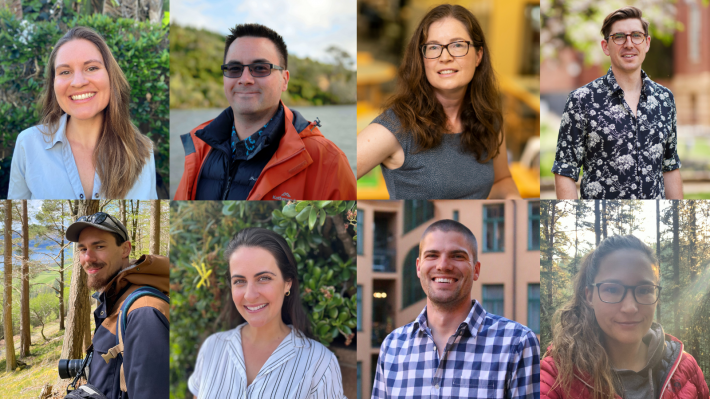
The journal prize winners are as follows:
- The Functional Ecology Haldane Prize – Indra Boving
- The Journal of Animal Ecology Elton Prize – Clara Woodie
- The Journal of Applied Ecology Southwood Prize – Dominic McAfee
- The Journal of Ecology Harper Prize – Tyler Coverdale
- The Methods in Ecology and Evolution Robert May prize – Willem Bonnaffé
- The People and Nature Rachel Carson Prize – Marc Tadaki
- The Ecological Solutions and Evidence Georgina Mace Prize – Melanie Dickie
- The Ecological Solutions and Evidence Chico Mendes Prize – Molly Mitchell
Haldane Prize: Indra Boving
University of California, Santa Barbara
The Functional Ecology Haldane Early Career Researcher Award is given is given each year to the best paper in the journal from an early career author. The winner is selected by the Senior Editors of the journal.
Indra Boving, a third year PhD candidate in the Landscape Ecophysiology and Function (LEAF) lab at the University of California, Santa Barbara, has been awarded this year’s prize for her paper: Live fuel moisture and water potential exhibit differing relationships with leaf-level flammability thresholds.
Indra and her colleagues research provides a link between tissue-level drought response in chaparral plants (the wilting, or turgor loss, point of leaves) and flammability. These findings point to a plant-level mechanism for landscape-scale wildfire patterns and highlight the importance of vegetation and plant physiology for understanding wildfire characteristics.
On winning the Haldane Prize, Indra said: ‘I feel incredibly proud and honoured to win the 2023 Haldane Prize, and it’s given me new confidence as a researcher. I also want to acknowledge the guidance I received from my mentors and co-authors – research rarely happens alone, and this prize has confirmed for me that I have an incredibly supportive community. Additionally, this study took place on the traditional ancestral land of the Chumash people, the original stewards of the plant communities we researched. I hope that highlighting our fire-related research might facilitate efforts to better protect these systems.’
I feel incredibly proud and honoured to win the 2023 Haldane Prize, and it’s given me new confidence as a researcher.
Emma Sayer, Senior Editor of Functional Ecology said: ‘Crucially, the study establishes fundamental links between plant ecophysiology and fire behaviour to reveal trait-based mechanisms underpinning landscape-scale wildfire patterns. As such, the paper has the potential to substantially advance the field of pyro-ecology, making it an excellent example of the kind of papers Functional Ecology seeks to publish.’
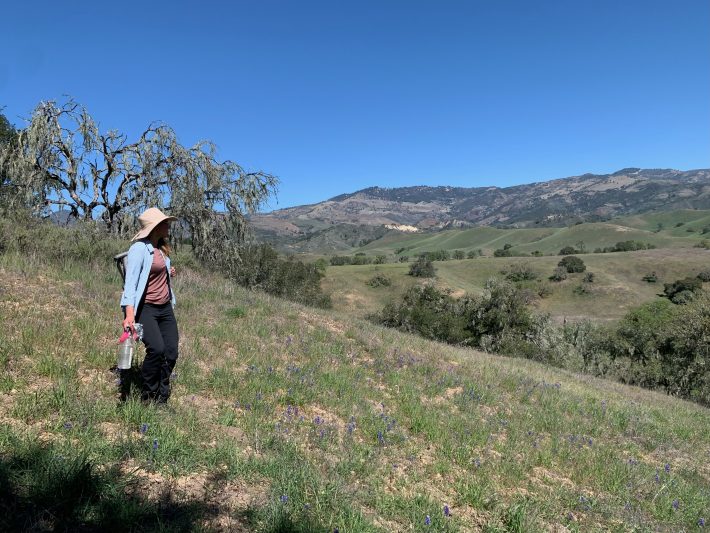
Elton Prize: Clara Woodie
University of California, Riverside

The Elton Prize is awarded each year for the best paper in Journal of Animal Ecology written by an early career author at the start of their research career. The winner is selected by the Senior Editors of the journal.
Clara Woodie, a Ph.D. candidate in Evolution, Ecology and Organismal Biology at University of California, Riverside, has been awarded this year’s prize for their paper: ‘Long transients and dendritic network structure affect spatial predator–prey dynamics in experimental microcosms‘.
In their study, Clara and colleagues explore how different network structures drive long-term predator-prey dynamics, offering new insights into spatial food web stability. In their research, they found that adding spatial structure can help stabilize extinction-prone predator-prey interactions, with predators thriving in highly connected landscapes while prey benefit from less-connected refuges. The results underscore the importance of considering large spatial and temporal scales in conservation efforts, providing a link between ecological theory and real-world applications for both predator and prey persistence.
These exciting results clearly elucidate the role of spatial complexity to improve biodiversity outcomes by delaying prey over-exploitation.
Clara said: ‘To be acknowledged by such a prestigious award at the beginning of my career boosts my confidence and motivates me to pursue my research with even greater passion. Winning this award validates my hard work, and those of my co-authors, and reaffirms my dedication to advancing the field of ecology.’
Lesley Lancaster, Senior Editor of Journal of Animal Ecology said: ‘In this year’s Elton award-wining paper, Clara Woodie and colleagues take advantage of a tractable protist mesocosm system to explore how dendritic or lattice-type spatial habitat networks impact long, transient dynamics in experimental predator-prey systems…these exciting results clearly elucidate the role of spatial complexity to improve biodiversity outcomes by delaying prey over-exploitation.
‘The study furthermore clearly demonstrates the value of mesocosm experiments to test theory relevant at protracted temporal scales, producing insights of wide applicability to animal population conservation and management.’
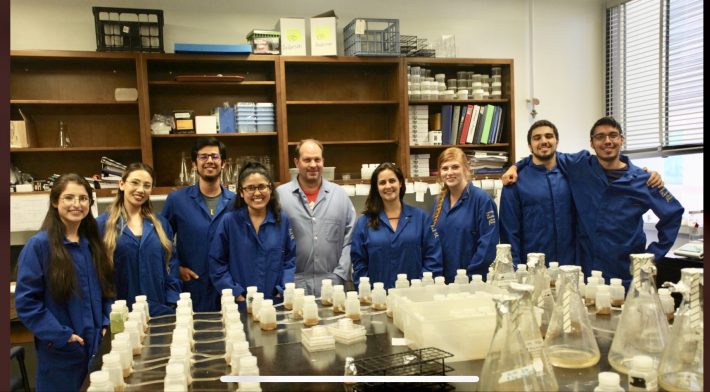
Southwood Prize: Dominic McAfee
University of Adelaide, South Australia
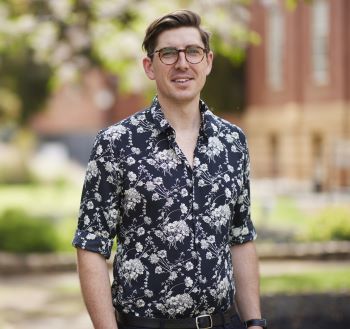
The Southwood Prize is awarded each year for the best paper in Journal of Applied Ecology written by an early career author at the start of their research career. The winner is selected by the Senior Editors of the journal.
Dominic McAfee, a marine ecologist at the University of Adelaide, has been awarded this year’s prize for his paper: Soundscape enrichment enhances recruitment and habitat building on new oyster reef restorations.
Dominic and his colleagues’ deployed marine speakers to test whether soundscape enrichment in oyster reef restorations could boost recruitment and habitat formation by oysters. Their results showed that using speakers at new restoration sites can boost oyster recruitment.
Receiving this award provided a real sense of pride and reflection on what was a very long and at times uncertain journey.
Dominic said: ‘Receiving this award provided a real sense of pride and reflection on what was a very long and at times uncertain journey. This paper is built on ~5 years of discovery with my main collaborator (Prof Sean Connell), our students, and the engineers from AusOcean that helped us play underwater sound using homemade speakers. There was a lot of SCUBA diving, tinkering in the lab, and many flooded speakers before we were able to successfully replicate natural sound at multiple sites. I am grateful to be able to share this journey and award with these great colleagues.’
Tadeu Siqueira, Senior Editor of Journal of Applied Ecology said: ‘Over the preceding decade, we’ve seen the rise of a cool new field – soundscape ecology, the study of sounds in nature to understand ecological dynamics across spatial and temporal scales. The work of Dominic McAfee and colleagues represents an innovative stride in this domain, elucidating the pivotal role of marine soundscapes in the restoration of oyster reefs.’
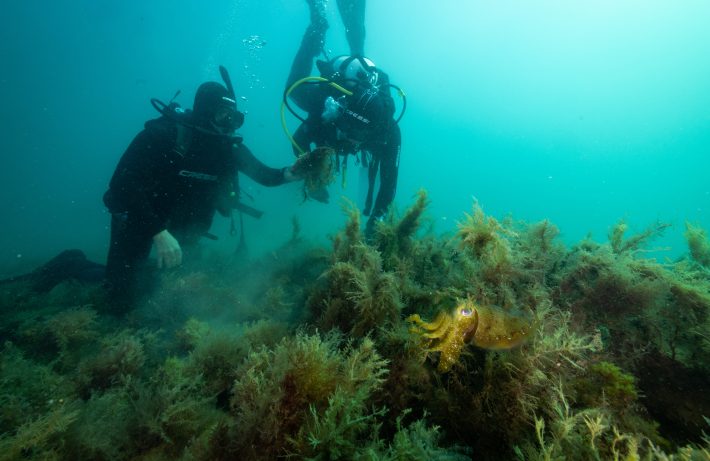
Harper Prize: Tyler Coverdale
University of Notre Dame 
The John L Harper Early Career Researcher Award is given each year to the best paper in Journal of Ecology by an early career author at the start of their career. The winner is selected by the Senior Editors of the journal.
Tyler Coverdale, an Assistant Professor in the Department of Biological Sciences at the University of Notre Dame, has been awarded this year’s prize for his paper: Unravelling the relationship between plant diversity and vegetation structural complexity: A review and theoretical framework.
Tyler and his co-author Andrew B. Davies studied what drives variation in Vegetation structural complexity (VSC),finding that vegetation structural complexity was nearly always higher at sites with greater plant diversity. These results suggest that the restoration of biodiversity and vegetation structure are compatible management goals, and that they can be simultaneously achieved by facilitating the establishment and persistence of diverse plant communities.
I feel that we’ve only begun to scratch the surface on the relationship between plant diversity and structural complexity.
Tyler said: ‘I’m honoured to receive the Harper Prize and grateful that this study has been recognized by the British Ecological Society. I feel that we’ve only begun to scratch the surface on the relationship between plant diversity and structural complexity, and I hope that the award will stimulate future research on this topic.’
Amy Austin, Senior Editor of Journal of Ecology said: ‘As Tyler´s succinct review points out, we have examined the consequences of VSC in many ecosystems but have paid less attention to the actual mechanisms for the variation in VSC. Until now. Tyler explores how remote sensing tools document the variation in vertical structuring of canopies, and how VSC relates to ecosystem function.
‘The presented evidence suggests a predominantly positive relationship between plant species diversity and VSC, emphasizing an underappreciated aspect of phytodiversity which may increase structural complexity, ecosystem stability and resistance and resilience to disturbance and global change.’
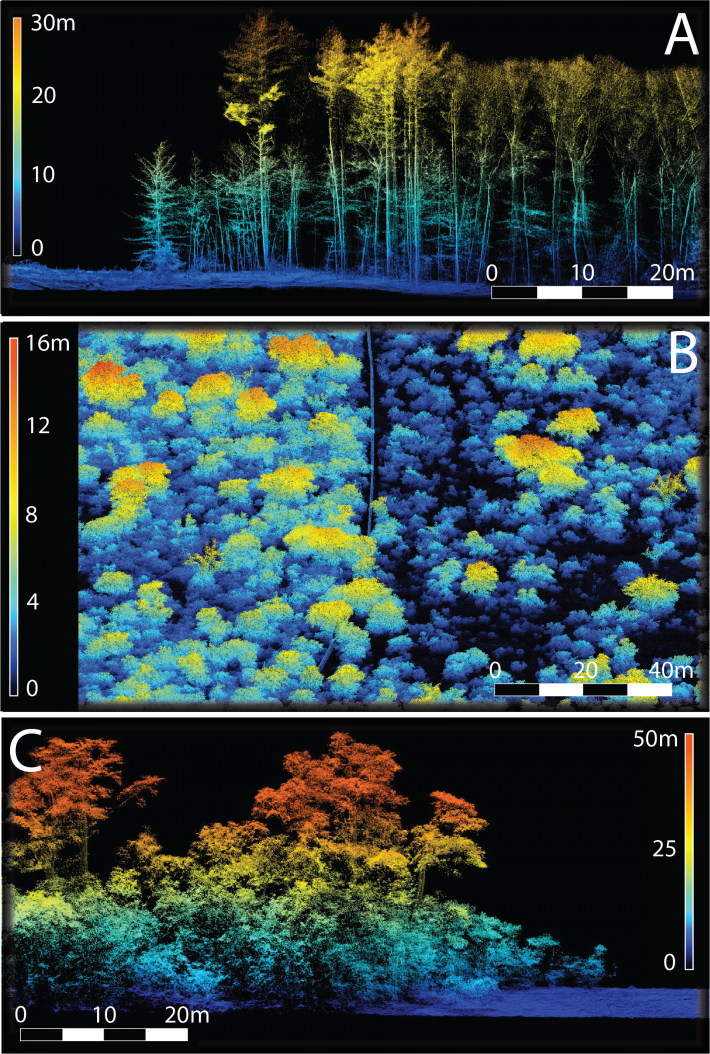
Robert May Prize: Willem Bonnaffé
University of Oxford 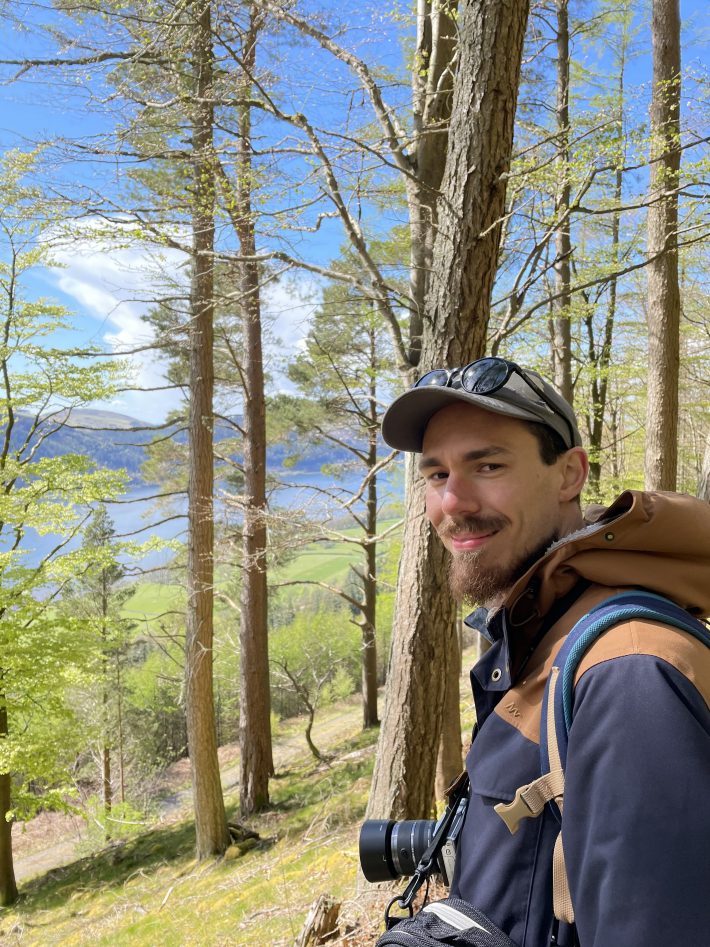
The Methods in Ecology and Evolution Robert May prize is awarded annually to the best paper submitted by an early career author at the start of their research career. The winner is selected by the Senior Editors of the journal.
Willem Bonnaffé, a postdoctoral researcher at the University of Oxford, has been awarded this year’s prize for his paper: ‘Fast fitting of neural ordinary differential equations by Bayesian neural gradient matching to infer ecological interactions from time-series data‘.
Willem and his co-author Tim Coulson designed an algorithm that reduced NODE fitting times from 15 minutes to 5 seconds (on the hare-lynx time series), by using neural networks to bypass numerical simulations. This method deals automatically with uncertainty and model complexity through Bayesian sampling and regularisation. This makes it a powerful tool for population management, as the user can focus on monitoring and forecasting dynamics, leaving the difficult task of identifying mechanisms to the neural networks.
This is a forging moment in the early stages of my career, which I will reflect on long after as motivation to persevere.
Willem said: ‘I am deeply humbled and beyond grateful that my work is deemed worthy of the Robert May Prize. This is a forging moment in the early stages of my career, which I will reflect on long after as motivation to persevere. This success is owed to the support of my mentors, Tim Coulson, Ben Sheldon, and Yves Bertheau, and my parents for passing on to me their love for nature.’
Nicolas Lecomte, Senior Editor of the journal said: ‘[This paper] introduces a novel and promising approach to unravel the mechanism behind interaction webs. Usually, interaction webs studies are limited by our tools to account for large fluctuations of predator and prey populations. Bonnaffé and Coulson (2021) already adapted the recent development of neural ordinary differential equations (Chen et al. 2018) to ecological time series; yet such methodological adaptation remained slow or even impossible to fit, limiting inferences for species interactions.
‘Using an elegant gradient matching set-in neural networks, Bonnaffé and Coulson created a powerful Bayesian tool to identify the key actors in interactions webs, while quantifying the strength and shape (e.g. non-linear) of those interactions. Now ecologists have at-hand a fast and robust method to decipher the functioning complex ecosystems in a matter of seconds.’
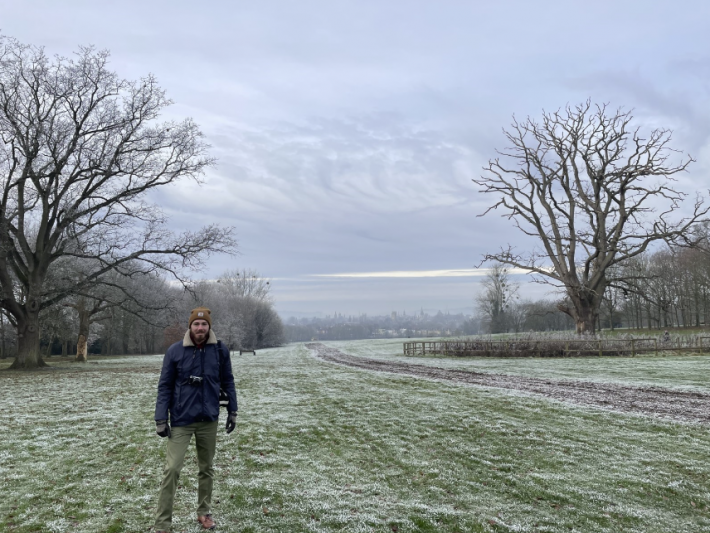
Rachel Carson Prize: Marc Tadaki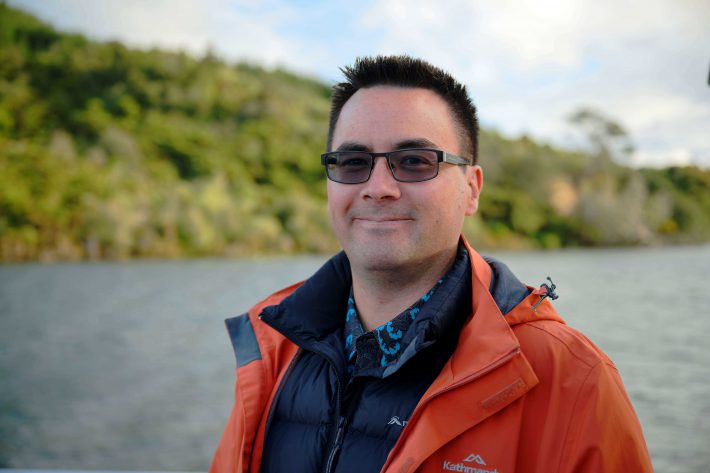
The Cawthron Institute
The Rachel Carson Prize is awarded each year for the best paper in the journal People and Nature written by an early career author at the start of their research career. The winner is selected by the Senior Editors of the journal.
Marc Tadaki, a Social Scientist at the Cawthron Institute in New Zealand, has been awarded this year’s prize for his paper: ‘Transforming freshwater politics through metaphors: Struggles over ecosystem health, legal personhood, and invasive species in Aotearoa New Zealand‘.
I feel humbled and grateful to receive this prize from People and Nature editors and the British Ecological Society.
In the study, Mark and colleagues look at how metaphors shape freshwater science and policy. For the metaphors of ecosystem health, invasive species, and legal personhood, they explored what social and natural features these metaphors draw attention to, and which relations they obscure. Furthermore, they looked at how these metaphors have been given specificity, permanence, and force in environmental policy, and what roles scientists play in generating and applying metaphors in environmental governance.
Marc said: ‘I feel humbled and grateful to receive this prize from People and Nature editors and the British Ecological Society. As a past Associate Editor for PAN (2019-2022) I know first hand that the lead editors keep very high standards, so is a true honour to receive this recognition – thank you all!’
Andrea Rawluk, Lead Editor of People and Nature, said: ‘One the of the great joys of being a part of the People and Nature team is engaging with and sharing academic conversations that go to the heart of the challenge of trying to understand and communicate the relationships between humanity and nature. With a focus on bridging abstract understandings with research approach and application, the manuscript ‘Transforming freshwater politics through metaphors: Struggles over ecosystem health, legal personhood, and invasive species in Aotearoa New Zealand’ contributes to the core of this challenge.
‘The beauty of this paper is that it draws on the accessible concept of metaphor as a way to reflexively conceptualise and communicate relationships between people and nature that has real world applications to policy and practice.’
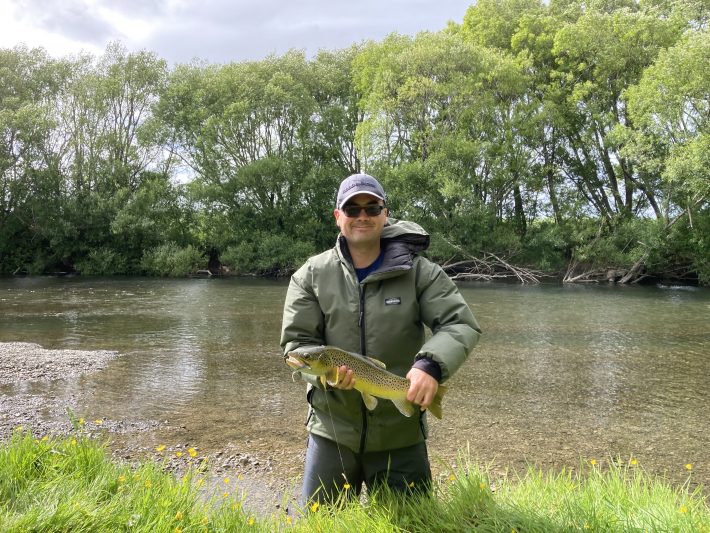
Georgina Mace Prize: Melanie Dickie
University of British Columbia-Okanagan 
The Georgina Mace Prize is awarded each year for the best paper in Ecological Solutions and Evidence written by an early career author at the start of their research career. The winner is selected by the Senior Editors of the journal.
Melanie Dickie, a PhD candidate at the University of British Columbia-Okanagan, has been awarded this year’s prize for her paper: ‘Applying remote sensing for large-landscape problems: Inventorying and tracking habitat recovery for a broadly distributed Species At Risk’.
Beyond Canadian forests, their work has wide-ranging applications for monitoring long-term patterns of vegetation variation across multiple scenarios.
In the study, Melanie and her colleagues provided a solution to inventory and tracking habitat change over landscape-level scales using remote sensing. The combination of remote sensing tools and ecological research is beginning to come together in new and exciting ways to support species- and ecosystem-based management. Crucially, these data can be used to estimate rates of habitat recovery at resolutions that are not feasible using more commonly used satellite-based sensors, bridging the gap between resolution and extent.
Melanie said: ‘To me, winning the George Mace Prize signifies validation and recognition of the contribution of our paper to ecology and conservation. It’s a testament to the significance of our work and its potential to make an impact. This award not only acknowledges my achievement of bringing together ecology and remote sensing, but also serves as a motivating force to continue pushing these trans-discipline boundaries. It inspires me to strive for further innovation and excellence as I progress in my career, fuelling my passion and commitment to advancing our collective understanding of ecology, conservation, and the tools that can support learning.’
Carolyn Kurle, Lead Editor of Ecological Solutions and Evidence said: ‘Beyond Canadian forests, their work has wide-ranging applications for monitoring long-term patterns of vegetation variation across multiple scenarios, including tracking changes related to climate change, wildfires, post-disturbance recovery, and habitat restoration, among other applications.
‘[Melanie’s] work increases the ability of ecologists to monitor habitat changes across long temporal and large spatial scales and is a terrific contribution to the ongoing effort to understand and decelerate habitat and species biodiversity loss.’
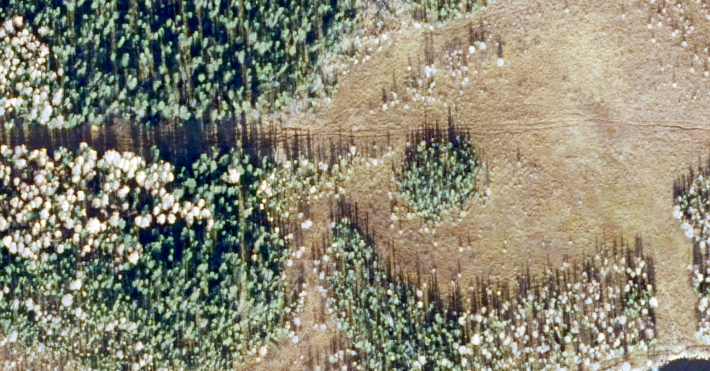
Chico Mendes Prize: Molly Mitchell
The College of William & Mary 
The Chico Mendes Prize is awarded biennially to the best Practice Insights article by an early career practitioner in the journal Ecological Solutions and Evidence. The winner is selected by the Senior Editors of the journal.
Molly Mitchell, a Research Assistant Professor and Director of the Professional MA program at the Virginia Institute of Marine Science (VIMS) at William & Mary, has been awarded this year’s prize for her paper: ‘A marsh multimodel approach to inform future marsh management under accelerating sea-level rise’.
I am excited that this award recognizes the role of science in the world and how scientists and practitioners can work together to solve problems.
In the study, Melanie and colleagues addressed an increasingly common management dilemma—how to make robust decisions for an uncertain future. As sea level rise accelerates, it’s possible that marshes could drown at an accelerating pace, making opportunities for migration critical to maintain their extent. In this case, they adapted a technique used with climate predictions to build an ensemble model of marsh migration, informing a physical and sociological understanding of tidal marshes that can allow for a management framework that incorporates both current and future concerns.
Melanie said: ‘I am excited that this award recognizes the role of science in the world and how scientists and practitioners can work together to solve problems and improve our capacity to manage our natural resources.’
Marc Cadotte, Editor-in-Chief of Ecological Solutions and Evidence said: ‘In this article, Mitchell and colleagues combine predictions from five different marsh ecosystem models along with a concerted effort to co-design research methodologies and management recommendations with local stakeholders. The models predicted marsh migration and the stakeholder group assessed value and implemented a decision-making framework to create management recommendations. The inclusion of local stakeholders not only reiterated the value of scientific methodologies, but coupled this with a need to consider social justice by including social and economic spatial layers in land protection and purchase recommendations.
‘This article is a superb example of how to bring cutting-edge science into on-the-ground management of an important ecological problem, while ensuring that local perspectives and knowledge contribute to the design of meaningful solutions.’
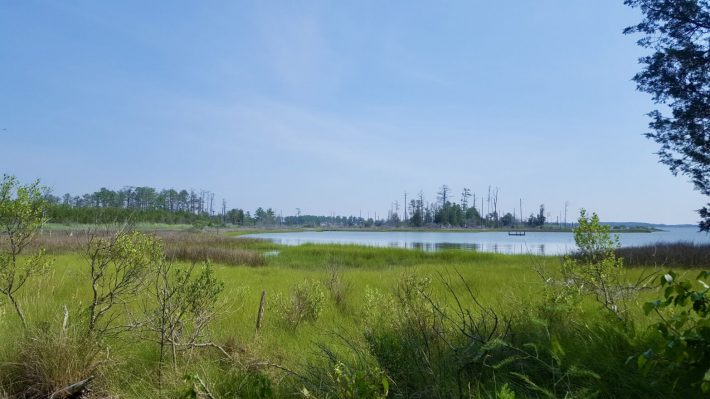
Congratulations to all our winners!
Like what we stand for?
Support our mission and help develop the next generation of ecologists by donating to the British Ecological Society.
